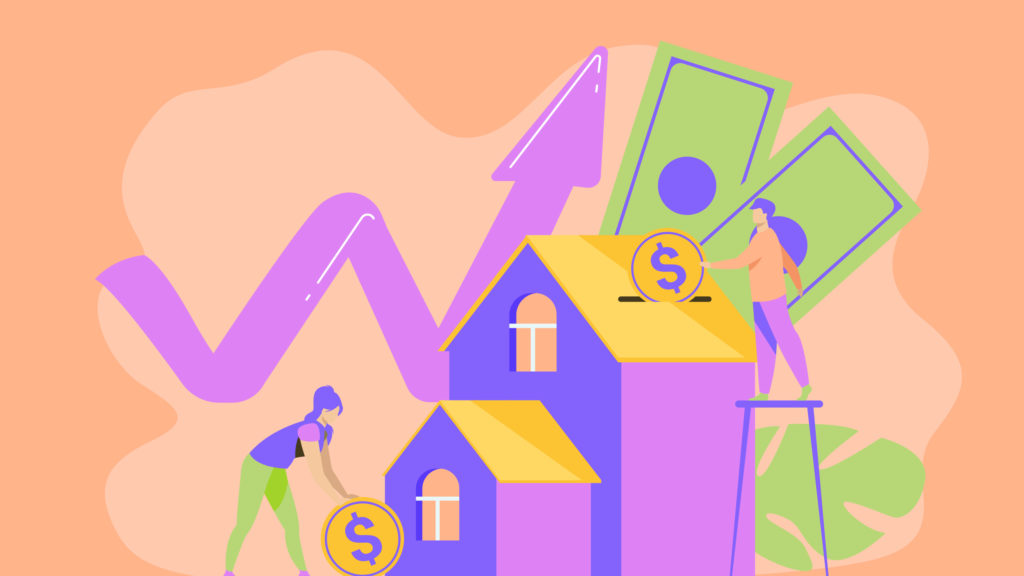[email-subscribers-form id=”2″]
Can you actually afford to buy?
Can you actually afford to buy.
There is so much pressure to buy a home to enter the property market these days that renters could be forgiven for experiencing a sense of failure if they are not planning to buy.
We have recently covered how renters can avoid that sense of financial failure.
But with even the Prime Minister apparently talking up buying as a solution to renting, the pressure to buy is powerful.
When asked why there wasn’t more support for renters in the 2022 Federal budget, Scott Morrison suggested buying should be people’s objective.
‘The best way to support people renting a house is to help them buy a house,’ Mr Morrison told The Today show.
The government’s 2022 Federal budget materially supported this objective by expanding the home loan guarantee scheme, which now allows people to borrow up to 95 per cent of the value of their property without having to take out mortgage insurance.
But with so much noise apparently nudging people to buy, how can you be sure you – with your finances, personal and job situation – can actually afford to buy a home?
Is buying always best?
Hamish Ferguson says it is not always correct that buying is better for everyone.
“It is good for some people but depending on the person it is not always best.”
People have many different reasons for renting – often because they are only in a town temporarily.
Owning a home is a huge commitment, often a lifelong one and it doesn’t guarantee financial success when you sign a contract.
In fact, any big contract that involves large sums of money requiring a long-term commitment to make repayments is inherently a financial risk.
You need to be well prepared to enter such a contract and have contingency plans in case your personal situation changes.
The reality is if someone is not really ready to buy, that renting – within your means and with a savings goal – is by far a better option than scrambling to buy a home and that could instantly put you into mortgage stress.
Mortgage stress is most commonly defined as a household spending more than 30 per cent of your pre-tax income on home loan repayments.
It’s also important to remember the upsides of renting when balancing up a choice:
The benefits of renting include:
-
- More freedom to travel the country and the world;
- Less of a financial commitment, especially upfront;
- No maintenance costs or repair bills;
- No property taxes;
- Greater ability to reduce living costs if your situation changes; and
- You are likely to have more disposable income.
Peer pressure in buying property ?
There’s often a perception that the decision about buying property only comes down to the lender – and that if you can buy, you should.
It’s true that the bank greenlights your loan and your mortgage, but there’s more to it than that.
Peer pressure can make people buy property they actually are not suited to.
This is a real thing. Aussies feel peer pressured into anything from splitting bills to buying property.
Eight per cent of Australians feel they have bought property because they felt pressured.
The peer pressure could be about the location, the commitment to buy or the style of home.
For instance, you might fall for an older property because you long to renovate, but just because you can get the loan doesn’t mean you should.
“An older property needs to be considered much more carefully as it is likely that you will need to contribute a higher amount to maintenance over the life of the property than a new property,” Mr Ferguson said.
Pre-approval from a lender is good, making sure that you have disclosed an accurate estimate of your cost of living, realistic estimation of the rent that the property will generate.
‘But you also should have had a good think about major expenses that might come up over the next few years and ensure that you can afford the property taking this into consideration.”
Red flags that mean you may not be able to afford to buy
Whether you can afford to buy should be influenced by a range of factors including:
-
- Your health and that of loved ones;
- Whether your employment is stable;
- The likelihood of increasing or losing income;
- Having a family, schooling;
- The stability of your other financial commitments, i.e. business ownership;
- Changing market conditions; and
- Additional costs above the purchase price.
In May 2022, the Reserve Bank of Australia (RBA) increased interest rates by 0.25% to 0.35%. The last time interest rates were increased was in 2007 by 0.25% to 6.75%, that is 15 years ago.
That year Steve Jobs released to the world a new product called the iPhone. A generation of new borrowers have not experienced a rate rise, only rate cuts.
The May 2022 rate increase is just the beginning, some experts are predicting a further six interest rate rises in the next two years and for consumers to take into account a doubling of interest rates.
It’s important to have enough flexibility to cope if your personal conditions change – or if market conditions keep changing.
‘I recommend that you can still afford the property at 6 per cent interest rates,” Mr Ferguson said.
On the average Australian home loan, which is currently $595,000, an extra three per cent would cost over $1,000 extra for each monthly repayment.
It would add up to nearly $400,000 extra over the course of a 30 year home loan.
Mr Ferguson says a buyer needs to take into consideration other costs such as insurance, rates and maintenance over time.
“This can depend on the area and type of property, however I would suggest that a $1.5 million property that is more than 20 years old will probably cost between $15,000 to $20,000 per annum to maintain.
“Possibly allowing 1 to 1.5% of the property value might be a reasonable level.”
What is the minimum amount of time a property investor should stick with a property?
“There are different schools of thought on this however my suggestion for clients is that a 10-year time frame as a minimum should be considered,” Mr Ferguson says.
“Generally the more regional the property being purchased, the longer the period that the property should be expected to be held.”










